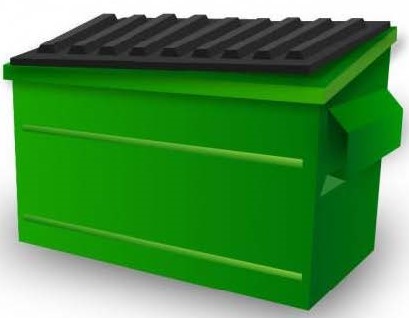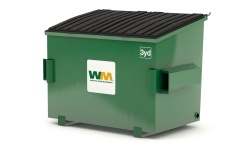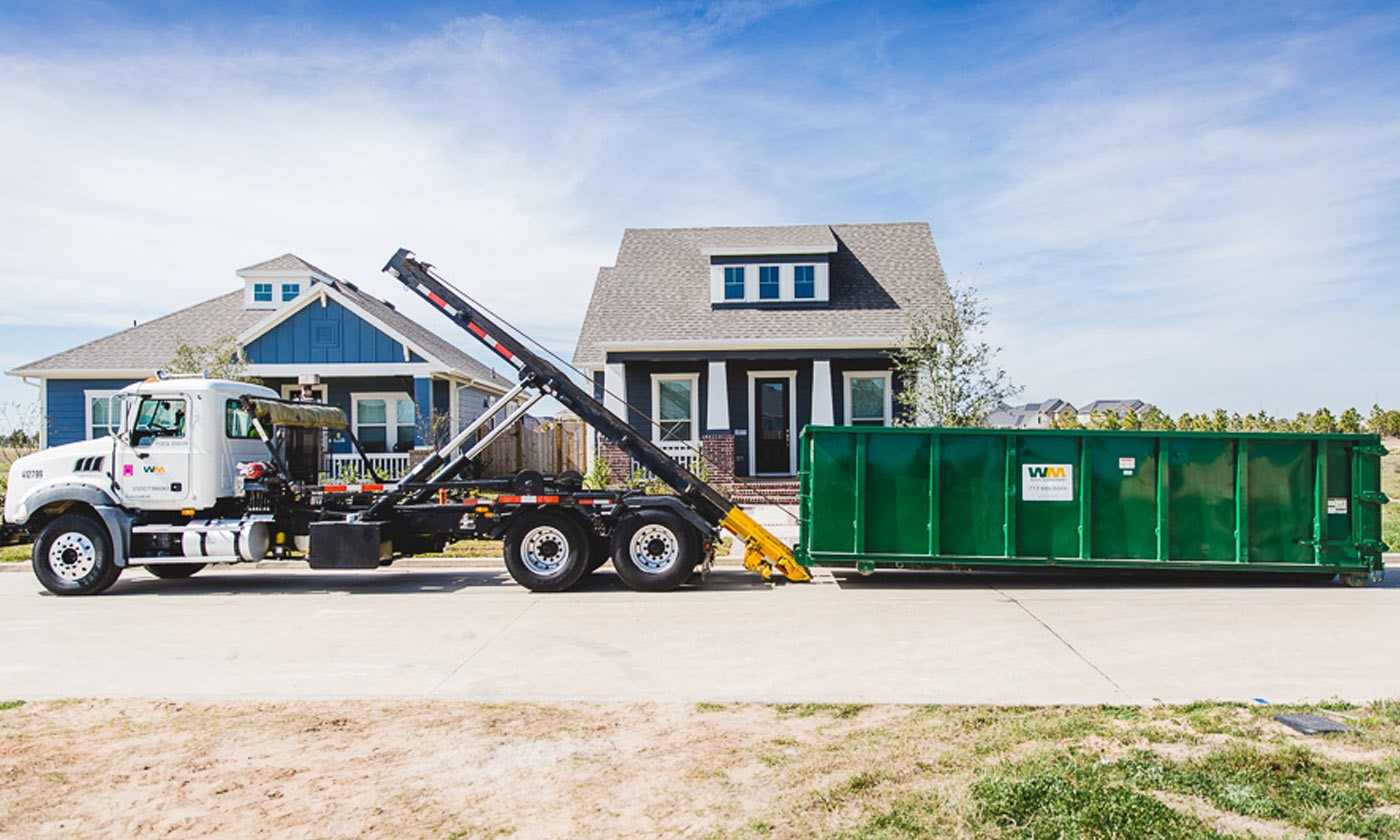When renting out a dumpster, it is very important to establish the right dimension and type for your task, taking into consideration elements like weight capacity and accessibility constraints. Understanding costs and rental periods is important to prevent surprise costs, and making clear pricing frameworks can avoid misconceptions. Prepare your home for distribution by clearing the area and assigning a specific location, and ensure you understand prohibited items like hazardous waste and fluids. Effectively fill the dumpster, handle heavy debris, and connect with your rental service provider to assure a smooth experience. By complying with these fundamental pointers, you'll be well on your way to a successful dumpster rental experience, and taking the next actions can assist you enhance your waste administration process
Determining the Right Dumpster Size
When taking on a large-scale project or cleaning, having the best dumpster size is vital to ensure effective waste management and prevent additional costs The incorrect size dumpster can result in squandered area, enhanced costs, and logistical headaches.
To establish the perfect dumpster size, take into consideration the extent of your task, the sort of products you'll be dealing with, and the offered area for the dumpster on your site.
Common dumpster sizes range from 10 to 40 lawns, with each size offering a details function. For small projects, such as washroom restorations or little clean-ups, a 10- or 20-yard dumpster might suffice.
Larger jobs, like commercial construction or estate cleanouts, may need a 30- or 40-yard dumpster. Be sure to additionally take into consideration the weight capacity of the dumpster, as overloading can result in additional fees and safety hazards.
Understanding Dumpster Rental Costs
With the appropriate dumpster dimension protected, focus turns to the economic element of leasing a dumpster. Comprehending the costs entailed is essential to assure a convenient experience.
The total cost of dumpster rental normally consists of a number of elements: the rental fee, delivery and pickup fees, and any additional services such as dumpster defense or extreme weight costs. Realize that rates may differ depending upon your place, the kind of waste being disposed of, and the rental duration.
Some dumpster rental business might likewise bill extra for solutions like same-day distribution or weekend break pickups.
To stay clear of surprise prices, it is necessary to clarify the pricing structure with your chosen provider. Inquire about any kind of possible added fees and validate you comprehend what is consisted of in the priced quote price.
Choosing the Right Dumpster Type
Selecting the appropriate dumpster type is necessary to assure a seamless waste administration procedure. Various projects need details dumpster kinds to assure effective and cost-effective waste disposal.
When picking a dumpster kind, take into consideration the following elements:
- Roll-off dumpsters: perfect for massive jobs, such as building and construction or demolition, because of their high capacity and ease of loading. Front-load dumpsters: ideal for businesses or restaurants, as they give routine waste collection and compact waste storage. Rear-load dumpsters: perfect for limited spaces, such as alleys or slim streets, because of their compact size and very easy loading. Mini dumpsters: fantastic for small tasks, like home remodellings or backyard cleanings, as they use flexibility and convenience.
Obtaining Necessary Permits and Licenses
Having chosen the right dumpster type for your project, it's similarly crucial to validate conformity with local regulations by getting the necessary permits and licenses. This action assures that your job proceeds smoothly, preventing potential penalties or disruptions.
The specific licenses called for vary depending upon your area, project type, and dumpster placement. Typically, you'll require a permit from your local government to position a dumpster on a street or sidewalk. In addition, some communities or property owners' organizations might have their own laws and permits.
Research the laws in your location and apply for the essential permits before the dumpster delivery Be prepared to offer project details, such as the dumpster size, placement, and duration.
Once you have actually acquired the essential permits, ensure you show them prominently on the dumpster or at the job site. Failure to comply with policies can cause penalties, so it's crucial to take this action seriously and strategy accordingly.
Preparing Your Building for Delivery
- Clear the delivery area of any barriers, including vehicles, trees, and power lines. Remove any kind of low-hanging branches or cables that could hinder the dumpster placement Make sure the driveway or street is vast enough for the dumpster truck to access the shipment site. Designate a details area for the dumpster, far from foot website traffic and potential hazards
Filling the Dumpster Efficiently
Optimizing dumpster space is essential to assure a hassle-free waste monitoring process By loading the dumpster effectively, you can stay clear of expensive overflows, decrease the danger of damages to surrounding building, and safeguard a smooth pick-up process.
To make best use of room, break down bulky items like furnishings and home appliances right into smaller, extra manageable pieces. This permits you to pack them tightly and take advantage of the offered area. In addition, consider layering your waste, starting with larger products near the bottom and filling in gaps with smaller sized ones. This will certainly assist prevent spaces and maintain the dumpster materials secure throughout transport.
When loading the dumpster, start by placing the heaviest products at the bottom and work your means up. This will certainly prevent lighter products from getting smashed and minimize the danger of damage to the dumpster itself.
Prohibited Items to Avoid
When renting a dumpster, it's important to know the prohibited items that can not be gotten rid of in the dumpster.
These products can create injury to the environment, damage the dumpster, and even pose a danger to human health Familiarizing on your own with what can and can not be discarded will certainly assist you avoid any potential issues or fines.
Some typical prohibited items include:
- Hazardous waste such as batteries, electronic devices, and fluorescent light bulbs Liquids, consisting of paint, chemicals, and fuel Asbestos, tires, and various other products having hazardous substances Medical waste, including needles, syringes, and other biohazardous materials
Managing Hefty Debris and Materials
Heavy construction tasks and improvements usually create a significant quantity of heavy debris and materials, consisting of concrete, asphalt, and roof roof shingles, which call for special handling and disposal
These products can be unbelievably dense and tough to handle, making it essential to intend ahead and select the best dumpster rental solution for the job.
When managing hefty debris and materials, it's important to consider the weight ability of the dumpster and the sort of devices required for filling and unloading.
Be certain to pick a dumpster with a heavy-duty frame and reinforced walls to stand up to the weight of these materials.
Additionally, consider the size of the dumpster and the frequency of pickups to ensure that you can successfully take care of the debris https://www.zupyak.com/p/4352849/t/dumpster-rentals-like-a-pro without overwhelming the dumpster or creating task delays.
Scheduling Pickup and Delivery
During the dumpster rental process, scheduling pickup and distribution is a vital element that can substantially impact the success of a task. A well-planned schedule warranties that the dumpster arrives promptly, permitting you to finish your job efficiently.

Conversely, a badly intended schedule can bring about delays, causing added costs and stress.
To avoid such concerns, take into consideration the following:
- Clear communication: Validate the delivery and pick-up dates with your rental provider to prevent confusion. Flexible scheduling: Choose a service provider that uses flexible organizing to accommodate modifications in your task timeline. Accurate placement: Validate the dumpster is placed in a conveniently obtainable location to help with efficient packing and unloading. Timely removal: Set up the pickup at a convenient time to avoid blocking pedestrian or automobile traffic.
Ensuring a Smooth Rental Experience
To assurance a seamless dumpster rental experience, it is crucial to concentrate on the better details that can make or damage the success of your project. One substantial aspect is verifying the dumpster is placed in an accessible location, enabling very easy loading and unloading of waste.
Additionally, it is necessary to clear the bordering area of any type of obstructions, such as cars and trucks, trees, or high-voltage line, to stop damages or safety and security hazards.

Furthermore, it is important to communicate effectively with your rental company, educating them of any specific needs or constraints, such as minimal room or heavy waste products. By doing so, you can prevent potential issues and guarantee a smooth rental experience.
It is also recommended to establish a clear understanding of the rental period, consisting of the specific distribution and pick-up times, to avoid any complication or delays.
